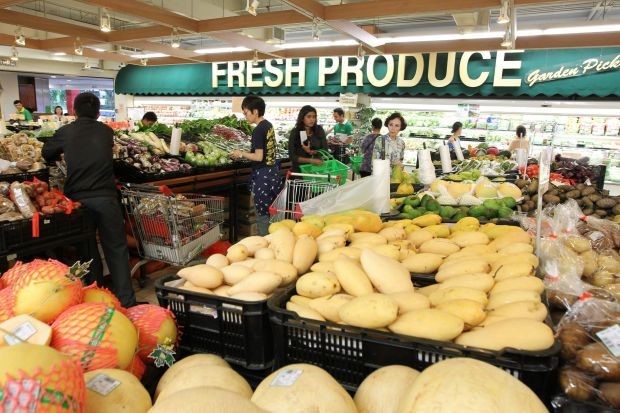
KUALA LUMPUR: Export bans or food protectionism are not the answer to maintain or lower the cost of living, according to Apurva Sanghi, who is The World Bank lead economist for Malaysia.
“Self-sufficiency is not the same as food security.
“Food security is about the three As – affordability, availability and accessibility – underpinned by safety and quality of food.
“Countries like Chile, for example, and many other Latin American countries have abandoned food protectionism, subsidies, and self sufficiency targets because they realise that they could meet their domestic demand by filling in orders from international market as long as the citizens have purchasing power,” he said after the online presentation of the World Bank’s latest report of Malaysia Economic Monitor: June 2022.
Since June 1, Malaysia had imposed a ban on the export of chickens to Singapore until domestic prices and production stabilise.
Apurva said there are many things Malaysia can do to ensure food price inflation is low and the cost of living remains reasonable.
“The first is to keep trade open, but increase targeted spending on those most effected. The second is diversifying away from rice. It’s interesting how 88% of the agricultural budget goes towards rice and rice-related activities,” he said.
Apurva noted that “Malaysians are starting to consume much more non-rice products such as cereal, fresh fruits and vegetables.”
“Something needs to be done about the subsidies and that will definitely help promote food security,” he said.
Apurva explained that countries resort to export bans because they are politically expedient, and help to control prices immediately in the short-term, and “seemingly increase availability of food.”
“They are attractive from that sense, but in the long run, they can actually do more harm than good. And why is that?
“You deny Malaysian producers the benefit of of higher prices and the wider market.
“The poor who rely on agriculture and farming are hurt typically because any benefit from lower food prices is outweighed by the decline in income.
“If you look at the average income of farming households in Malaysia and the poor, it is less than the typical B40 income,” he said.
Apurva added that as export bans deny producers from benefiting from higher prices, this results in less investments in domestic capacity to produce food.
“Importing countries can switch producers. There are news reports about how Singapore is now looking towards Thailand and other countries to meet the shortfall,” he said.
Regarding potential interest rate hikes and weakness in the ringgit, Apurva said he believes that the central bank is more concerned about stability and volatility, rather than maintaining the ringgit per se.
“Therefore, we expect future movements in the overnight policy rate to be largely determined by domestic economic conditions, instead of reacting to foreign exchange volatility, and preferably at a gradual and measured pace,” he said.
Meanwhile, the World Bank’s latest report pointed out that Malaysia’s economic recovery is gaining momentum and its economy is projected to expand 5.5% in 2022 (2021: 3.1%), driven mainly by a robust rebound in consumption demand.
Private consumption growth is forecast to reach 8.5% this year – its fastest pace since 2008 (1.9%).
The report said this strong recovery in household spending is premised on further and dissipation of public health concerns in absence of a severe resurgence of Covid-19 caseloads, as well as continued policy support and gradual improvements to employment and income prospects.
Meanwhile, public consumption is expected to grow at a more moderate pace of 1.8% in 2022 (2021: 5.3%), in line with expectations of lower spending growth in emoluments as well as supplies and services.
Gross fixed capital formation is expected to grow at 6.5% this year (2021: negative 0.9%), driven by a strong rebound in public investment and a gradual pickup in private investment.
“Capital spending by the government will be mainly directed to transportation, health and education sectors, while investment activity by public corporations will be largely supported by the implementation of existing and new transportation infrastructure projects,” said the report.
Also, private investment is expected to expand across all sectors this year, albeit at a more moderate pace than public investment, in line with the broader recovery in domestic demand conditions.
However, increased uncertainty regarding the external environment could affect investment decisions, particularly among export-oriented firms.
Softening global growth momentum will weigh on trade growth over the near term.
Notwithstanding continued support from global demand for electrical and electronics (E&E) exports and higher commodity prices, Malaysia’s exports are projected to expand at a slower rate of 4.9% next year (2021: 15.4%), in line the ongoing slowdown in global trade growth.
Imports are forecast to grow by 5% in 2022 (2021 forecast: 17.7%), with broad-based expansion expected across consumption, intermediate and capital imports, supported by stronger household consumption and continued expansion in investment and export activity.
The current account surplus is projected to widen to 4.2% of gross domestic product (2021: 3.5%) on account of a larger trade surplus in goods, in part reflecting higher commodity prices.
However, as a highly open economy, Malaysia will continue to face significant downside risks from the external environment.
The war in Ukraine has remained a major source of risk, and its potential intensification could further dampen global demand, prolong supply disruptions, increase global prices, worsen financial stress, and weaken global confidence.
Increased vulnerability among affected households and businesses could also constrain growth domestically.
In addition, the recent sharp increase in food prices may constrain households’ ability to sustain consumption in the near-term.
These factors could result in a slower-than-expected rebound in household spending and a more modest recovery in the labour market.
“The relatively high levels of household and corporate debt also present risks to macro-financial stability which warrant close monitoring, especially given that defaults on loan repayments are likely to increase once repayment assistance and other regulatory forbearance measures expire,” said the report.
Source: https://www.thestar.com.my/business/business-news/2022/06/14/ban-on-exports-not-the-solution

